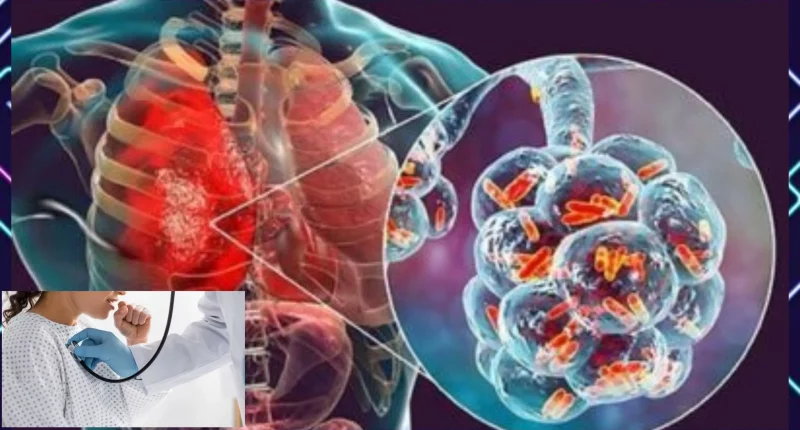Preventing pneumonia or not letting it get worse is a good approach to protecting your lung health.
Pneumonia is a serious lung infection that can be life-threatening, especially for young children, older adults, and those with weakened immune systems. It is caused by various infectious agents, including bacteria, viruses, and fungi, that can fill the lungs with fluid and make breathing difficult. Pneumonia disproportionately affects the elderly, with adults over 65 accounting for the majority of hospitalizations and deaths from the disease.
Globally, pneumonia is the leading infectious cause of death in children under 5 years old, killing an estimated 740,180 children in 2019 and accounting for 14% of all deaths in this age group, WHO. Pneumonia affects both genders, but some studies suggest it may be slightly more common in men than women.
According to the World Health Organization, there are approximately 120 million episodes of pneumonia per year in children under 5 worldwide, with over 10% progressing to severe cases.
Fortunately, pneumonia can often be prevented or stopped from getting worse through various effective strategies. Recent research has identified several evidence-based approaches that can help individuals reduce their risk of developing pneumonia and avoid the condition from escalating.
Preventing Pneumonia: Strategies to Avoid Serious Lung Infections
Get Vaccinated
Vaccines are one of the most important tools for preventing pneumonia. Seasonal influenza, COVID-19, and pneumococcal vaccines can significantly reduce the risk and severity if you get sick with pneumonia. The CDC recommends pneumococcal vaccination for all adults 65+ and those with certain medical conditions.
Get Proper Rest
By giving your body the right amount of rest, you allow it to fight the infection effectively. Pneumonia can leave you feeling extremely tired and fatigued, so sleeping and resting are crucial for the recovery process and preventing the infection from worsening. It may take 1-2 months to fully recover, especially if hospitalized.
Stay Hydrated
Keeping your body properly hydrated is another important step in dealing with a lung infection. Some signs of dehydrated skin or body include itchiness, dry mouth, lightheadedness, etc. Make sure to add a lot of fluids to your daily diet, such as water, coconut water, and oral rehydration solution (ORS) water. Proper hydration supports the body’s natural defenses against the infection.
Practice Good Hygiene
Washing your hands frequently, especially after coughing or sneezing, can help stop the spread of respiratory infections that can lead to pneumonia. Avoiding close contact with those who are sick is also important.
Quit Smoking
Smoking damages the lungs and impairs the immune system, putting smokers at much higher risk of developing pneumonia. Quitting smoking can rapidly improve lung health and reduce pneumonia risk.
Manage Chronic Conditions
Underlying health issues like asthma, COPD, diabetes, and heart disease increase pneumonia risk. Keeping these conditions well-controlled through proper treatment and lifestyle management can help prevent pneumonia.
Use Antibiotics Responsibly
Overuse of antibiotics can contribute to antibiotic resistance, making pneumonia harder to treat. Healthcare providers should follow antibiotic stewardship guidelines to prescribe antibiotics judiciously.
Eat Healthy Foods and Exercise Regularly
Eating a healthy, nutrient-rich diet is crucial when recovering from pneumonia to prevent the infection from worsening.
Eat More:
- Dark leafy greens like spinach, kale, and broccoli which are packed with vitamins A, C, and E to support immune function
- Lean proteins like chicken, fish, eggs, and legumes to help repair lung tissue and fight infection
- Whole grains for complex carbs, fiber, and B vitamins to boost energy levels
- Probiotic-rich foods like yogurt, kefir, and fermented vegetables to support gut health and immunity
- Plenty of fluids like water, broths, and herbal teas to stay hydrated and thin mucus
Avoid:
- Spicy, fried, and greasy foods which can be harder to digest and may worsen symptoms
- Sugary foods and drinks which provide empty calories and can suppress the immune system
- Alcohol, which dehydrates the body and can interact with medications
Caffeinated beverages in excess as they can be dehydrating
Other Tips:
- Eat smaller, more frequent meals if you have a poor appetite
- Use herbs and spices liberally for flavor instead of salt
- Consider a multivitamin if your appetite is very poor to ensure adequate nutrient intake
- Stay upright for 30 minutes after eating to ease breathing
Pairing a healthy diet with regular light exercise like walking can further boost circulation, lung function, and overall recovery. Consult your doctor or a registered dietitian for personalized nutrition guidance during your pneumonia recovery.
With these evidence-based prevention strategies, many cases of pneumonia can be avoided, and the risk of serious complications can be significantly reduced. Monitor your symptoms closely and contact your doctor promptly if you experience concerning signs like increasing shortness of breath, high fever, chest pain, or confusion. Early treatment is key to preventing complications.
Signs Your Pneumonia Is Getting Worse
Here are the key signs that pneumonia is getting worse and requires immediate medical attention:
- Increasing shortness of breath or difficulty breathing
- Bluish color to lips and fingernails
- Coughing up bloody or rust-colored mucus
- Chest pain that worsens when breathing or coughing
- Sudden worsening of symptoms after an initial improvement
- High fever (over 101°F or 38.3°C) or shaking chills
- Confusion or changes in mental awareness, especially in older adults
- Rapid breathing or rapid heart rate
- Severe fatigue or weakness.
Also Read: Is Your Pneumonia Caused by COVID-19 or Other Factors? This Test Can Tell
References
Healthline. (n.d.). Everything You Need to Know About Pneumonia. https://www.healthline.com/health/pneumonia
American Thoracic Society. (2019). Top Pneumonia Facts. https://www.thoracic.org/patients/patient-resources/resources/top-pneumonia-facts.pdf
Johns Hopkins Medicine. (n.d.). Pneumonia. https://www.hopkinsmedicine.org/health/conditions-and-diseases/pneumonia
NHS inform. (n.d.). Pneumonia. https://www.nhsinform.scot/illnesses-and-conditions/lungs-and-airways/pneumonia/
National Heart, Lung, and Blood Institute. (n.d.). Pneumonia Prevention. https://www.nhlbi.nih.gov/health/pneumonia/prevention
American Lung Association. (n.d.). Preventing Pneumonia. https://www.lung.org/lung-health-diseases/lung-disease-lookup/pneumonia/preventing-pneumonia
Jain, S., Self, W. H., Wunderink, R. G., Fakhran, S., Balk, R., Bramley, A. M., Reed, C., Grijalva, C. G., Anderson, E. J., Courtney, D. M., Chappell, J. D., Qi, C., Hart, E. M., Carroll, F., Trabue, C., Donnelly, H. K., Williams, D. J., Zhu, Y., Arnold, S. R., … CDC EPIC Study Team (2015). Community-Acquired Pneumonia Requiring Hospitalization among U.S. Adults. The New England journal of medicine, 373(5), 415–427. https://doi.org/10.1056/NEJMoa1500245










